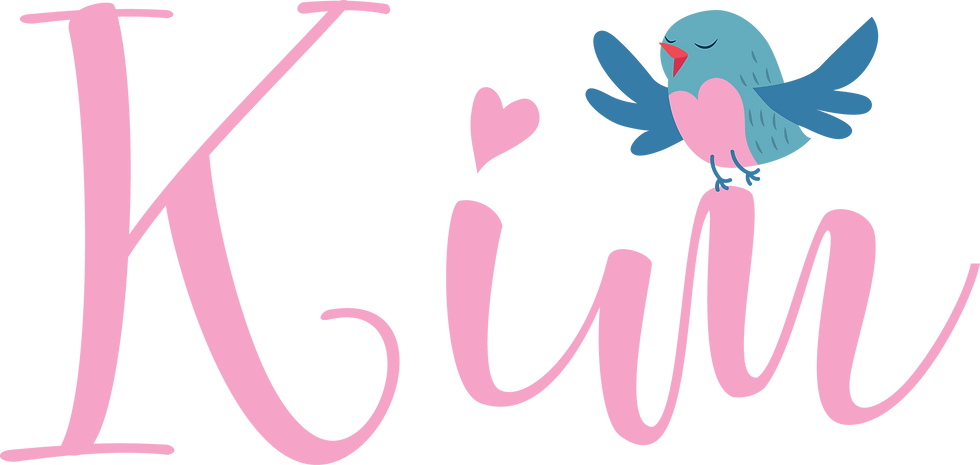GUEST POST: Writer vs Storyteller by Samantha M. Clark
- Kim

- Sep 28, 2017
- 4 min read
Hello everyone! Happy Thursday! Today's guest post comes from the amazing Samantha M. Clark, fellow Electric 18 and author of the upcoming MG novel, WAKE! For those of you that have ever struggled with calling yourself a "writer," this post is for you! I know this has tripped me up in the past, and I love Samantha's take on it! :)
Take it away, Samantha!

I’ve never been a big fan of the word “writer” as a description for what I and my fellow authors do. Sure, I write my stories, mostly on my computer, sometimes longhand when I’m stuck, often on napkins, the back of bills, or whatever else is handy when I get an idea. But the more experience I have with this job, the more I’ve come to understand that writing is not really what it’s all about.
I’m not talking about the fact that the majority of my time spent with any one of my novels is in fact revising. And I’m not taking away from the, probably, 200K-plus words I’ve written, deleted, finessed and moved around to get the right 45K words in the right places—as much as I can—for my latest novel. All that is writing.
But, for all the writing I do, none of it matters if I’m not telling a good story. And that is ultimately my most important task.
Many years ago, I sat in a hotel ballroom with about 1200 other creators of children’s books and listened to YA author John Green give a keynote at SCBWI’s annual Summer Conference in Los Angeles. He started out by reading some writing he had done, an amazing piece of prose that left the entire audience applauding and wanting more. Then he told us something shocking:
These words—beautiful, haunting, emotional—had been cut from the beginning of his novel.
I could hear people around me chatting in surprised whispers. (It was my first conference and I didn’t know anyone so I kept my surprise to myself, but it was there.) The roughly 2-page section John Green had read had character and drive and had pulled in everyone in that room. I would give a kidney to write something so brilliant, and I know all the writers around me were thinking the same thing.
But, as John Green explained to us after we’d all gotten over the shock: the pages didn’t work for the story.
A story is not a collection of beautifully written pages bound together with glue, string and a cover. A story is character and flaws, needs and wants, obstacles and mentors, failures and victories. A story is setting, places where readers can live with the characters, houses, buildings, lands, seas, air, politics, religions. A story is plot, action, movement, decisions, choices.
And if the words writers write, no matter how beautifully they are put together, don’t serve all these things, they don’t belong in the story.
Through Stephen King’s wonderful craft book On Writing, I learned about William Faulkner’s great quote: “In writing, you must kill your darlings.” And listening to John Green’s keynote speech, I really understood what that meant. Not that it’s easy to do! When I write a sentence I’m particularly proud of, the last thing I want is for it not to be read by anyone but me. For a long time while I was learning my craft, I’d save every one of my cut sentences, then go through them and see if there were any really good ones I wanted to work back in—afraid I could never write another sentence like that again.
In my middle-grade novel WAKE, which is coming out from Paula Wiseman Books/Simon & Schuster next June, I did this many times. The book’s story is about a boy who wakes up alone on a beach with no memory of who he is or how he got there. He quickly learns that his surroundings aren’t friendly, and if he’s going to find his home, he’s going to have to face a lot of fears.
The book is magical realism, with the boy’s surroundings as much a character as he is. And as such, when I started writing the story, the voice came out very lyrical. It was different from anything else I’d written up to that point—and it scared the hell out of me.
Every time I came up with a fun twist of language, I’d give myself a pat on the back then be terrified I couldn’t do it again. And when I had to start revising, I saved every sentence I’d cut in case my fears were right.
Ultimately, though, creativity begets creativity. The more you write, the more the words bubble up. And the more rounded the story became, the more I knew which words would serve it the best. In my numerous revisions for this book, I’ve cut many sentences, paragraphs and scenes, reworked many others, and some still make me sad.
But the more I write stories, the more I know that while I may be a writer, I’m first and foremost a storyteller.
About the Author:

Samantha M Clark is the author of the middle-grade novel WAKE, coming out June 26, 2018, from Paula Wiseman Books/Simon & Schuster. A former journalist and editor, she writes about ordinary kids in extraordinary circumstances, because if four siblings can find a magical world in the back of a closet, why can’t she? She lives in Austin, Texas, with her husband and two loopy dogs and searches wardrobes every chance she gets. Find her on her website, Facebook, Twitter and Instagram
Thank you so much, Samantha! I just loved this post so much! Everyone be sure to check out Samantha's upcoming book, WAKE, and add it to your goodreads!
Until Next Time, Folks!



























Comments